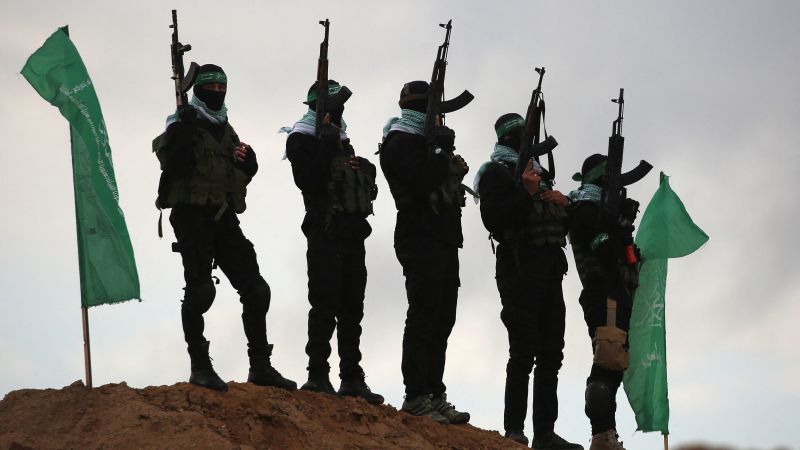Arab Nations Demand Hamas Disarmament and Power Transfer in Historic Call for Gaza Peace

In an unprecedented move that signals a significant shift in regional diplomacy, a coalition of Arab and Muslim nations, including Qatar, Saudi Arabia, and Egypt, have jointly urged Hamas to disarm and cede control of the Gaza Strip. This coordinated call comes amidst ongoing efforts to broker a lasting ceasefire and pave the way for a durable peace in the war-torn territory.
The joint statement, released earlier today, represents a unified front rarely seen in addressing the complex Israeli-Palestinian conflict. It directly challenges Hamas's authority and calls for the group to relinquish its grip on power, a demand that is likely to be met with strong resistance. The statement emphasizes the urgent need for stability and security in Gaza, arguing that disarmament is a crucial prerequisite for reconstruction and the establishment of a sustainable future for the Palestinian people.
Why This Demand Matters: For years, Hamas's control of Gaza has been a major obstacle to peace negotiations and a source of instability in the region. The group's armed wing has repeatedly launched rockets into Israel, triggering retaliatory strikes and cycles of violence. International efforts to mediate a ceasefire have often been hampered by Hamas's refusal to disarm. This joint call from key Arab nations adds significant weight to the pressure on Hamas to reconsider its position.
The Role of Qatar, Saudi Arabia, and Egypt: These three nations have historically played pivotal roles in mediating between Israel and Hamas. Qatar has maintained a dialogue with Hamas leadership, while Saudi Arabia and Egypt have exerted their influence through diplomatic channels. The fact that they are now issuing a joint call for disarmament underscores the seriousness of the situation and their shared desire for a resolution.
Challenges Ahead: The road to peace will undoubtedly be fraught with challenges. Hamas has repeatedly rejected calls for disarmament, viewing its armed wing as essential for defending Palestinian interests. Furthermore, the group enjoys support among some Palestinians who see it as a symbol of resistance against Israeli occupation. The success of this joint call will depend on several factors, including the willingness of Hamas to engage in meaningful negotiations, the support of other regional and international actors, and the creation of a credible framework for a future Palestinian state.
What's Next? The Arab nations are expected to continue exerting diplomatic pressure on Hamas, working alongside international partners to facilitate negotiations. The statement also signals a potential shift in the dynamics of the conflict, with Arab nations taking a more assertive role in shaping the outcome. The coming days and weeks will be critical in determining whether this unprecedented call can lead to a breakthrough and a path towards a lasting peace in Gaza.
The international community is watching closely, hoping that this coordinated effort will contribute to a de-escalation of violence and create an opportunity for a more sustainable and peaceful future for both Israelis and Palestinians.






